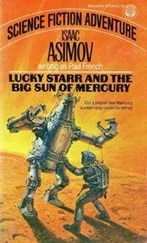Jerry Pinto - Em and the Big Hoom
Здесь есть возможность читать онлайн «Jerry Pinto - Em and the Big Hoom» весь текст электронной книги совершенно бесплатно (целиком полную версию без сокращений). В некоторых случаях можно слушать аудио, скачать через торрент в формате fb2 и присутствует краткое содержание. Год выпуска: 2014, Издательство: Penguin Books, Жанр: Современная проза, на английском языке. Описание произведения, (предисловие) а так же отзывы посетителей доступны на портале библиотеки ЛибКат.
- Название:Em and the Big Hoom
- Автор:
- Издательство:Penguin Books
- Жанр:
- Год:2014
- ISBN:нет данных
- Рейтинг книги:3 / 5. Голосов: 1
-
Избранное:Добавить в избранное
- Отзывы:
-
Ваша оценка:
- 60
- 1
- 2
- 3
- 4
- 5
Em and the Big Hoom: краткое содержание, описание и аннотация
Предлагаем к чтению аннотацию, описание, краткое содержание или предисловие (зависит от того, что написал сам автор книги «Em and the Big Hoom»). Если вы не нашли необходимую информацию о книге — напишите в комментариях, мы постараемся отыскать её.
Em and the Big Hoom — читать онлайн бесплатно полную книгу (весь текст) целиком
Ниже представлен текст книги, разбитый по страницам. Система сохранения места последней прочитанной страницы, позволяет с удобством читать онлайн бесплатно книгу «Em and the Big Hoom», без необходимости каждый раз заново искать на чём Вы остановились. Поставьте закладку, и сможете в любой момент перейти на страницу, на которой закончили чтение.
Интервал:
Закладка:
• • •
In my late teens, prey to all kinds of inadequacies, I embarked on a programme of remedial reading. First, Plato, an omnibus edition with forty-eight of the fifty-five dialogues, which left me annoyed and exhausted because I did not believe that beauty had much to do with truth or vice versa. And then, for no apparent reason, I began reading the Mahabharata in Kamala Subramaniam’s translation. This was wild and terrifying and it almost drove me to despair. The whole book seemed to be a thicket of names and relationships, many of which sounded dangerously like each other. I used a piece of paper, solemnly writing down the names of the Pandavas, their antecedents, their wife and wives and children and relatives, but it was still difficult. Finally, I grew exhausted — it was summer, the hardcover edition was cutting into my chest, and the sun was bright outside — and so I began reading from page to page, not bothering about who was who. Once I had given up trying to conquer the text, it began to glow with an epic excess of almost every conceivable human passion. I was transfixed.
Then I came upon the Bhagawad Gita and it seemed as if Krishna was speaking to me. He was telling me that if I were a student then I had to be a student. I did not have to be my mother’s nurse. I had to do my duty according to my station in life…
For a whole six hours one morning, I felt the glow of a benign blue Hinduism pouring down upon me. At the end of that period, I looked across the room. Em loved the heat, so she had had a good summer, full of manic energy and insomnia. She had been on a roll, talking endlessly, making or asking for endless cups of tea, roaring at all of us if we asked for peace and quiet. ‘You’ll get an eternity of peace and quiet in the grave.’ She would sober down a little only when The Big Hoom returned from work in the evenings, but when he was in the kitchen, cooking, she would break loose.
April had been quieter, but then Em was a great respecter of education. When we were studying for examinations, she could always be quelled by one of us saying, sounding agonized, ‘I’m studying.’ ‘Okay, then I’ll zip my lip,’ she would say and light another beedi and scratch out a letter to someone. Or make some more tea. Perhaps the processes calmed her, though there was nothing Zen-like or ceremonial about the way she made tea, whistling old snatches of Broadway and vaudeville melodies as she thumped and slammed and poured and strained and sugared and slurped her way through another cup, standing up, her head already bubbling over with something else that had to be said.
But this was well into June. Susan and I hadn’t had any need to study for over a month; there had been nothing to restrain Em. She had exhausted herself and us with her mania. And now, as I put away the Mahabharata , I knew instantly that she was beginning the slide into depression. Perhaps it was the silence that had disturbed me and broken the spell of the Blue God’s arguments.
Em had lit a beedi but she was staring at the floor, as if it might conceal a pattern or a story.
After a few seconds, she shook her head like a dog pestered by a fly, got up, stretched and said, ‘Time for another cuppa.’
‘I’ll join you if I may,’ I said.
‘No hope of my joining you while you make it, is there?’ she said. ‘No, I thought not.’ Then she was in the kitchen, silent, and the slow sounds of the pan being put on the stove, the tins being opened, her feet dragging across the cramped space told me that she was sinking into night, that the black drip had started inside her.
I could hold on to my karma defence for a little longer but it was already seeming thin. How could you do your duty when love beckoned you to do something else? No, that was easy enough. Lord Krishna had dealt with that: you ignored love.
And I tried to. When Em was ‘high’, I could be a busy student, in every sense of the word. I could run amok in art galleries where I would write comments and sign them as John Ruskin or Clement Greenberg. I could watch two long movies back-to-back at film festivals. I could spend entire afternoons borrowing and returning books from three libraries in three different parts of the city. I could find fifty other ways to block her out because she could be an extremely painful mother for an adolescent boy.
On an ordinary day, returning from college, I would be greeted with: ‘Hey sexy, did you have any luck today?’
‘Luck?’
‘Did you get any sex?’
‘Em!’
‘So you didn’t. Those girls must be blind.’
‘Stop it.’
‘But maybe it’s all to the good. When Susan was born, Griselda came over. You remember Griselda, no? She was with me at the AmConGen… She had beautiful boobs. I think she was a forty but I couldn’t be sure. I shouldn’t have been looking, do you think? I mean, was it a bit lesbian? I looked but I don’t think I wanted to touch. You know when I found your Debonair …’
‘You what?’
‘Oh, I put it back, don’t worry. Behind the tank in the toilet, what a place! I suppose you’d have hidden them under the mattress in your room, if you had a room. Poor beetle, where else are you going to fiddle?’
‘Em!’
‘Anyway, I looked at the centrefolds and I thought, some nice girls. But I didn’t want to nuzzle.’
‘Em!’
Her conversation had a way of reducing me to exclamations. I think she enjoyed that and worked out exactly how she was going to do it.
‘O Lord, talk won’t make tea, will it? Let me get you a cup that cheers but does not inebriate and a biscuit and we’ll be convivial.’
The phone rang.
‘Do you want to come and see Wada Chirebandi ? There’s a couple of spare tickets.’
I did.
I finished my tea, raced through a bath and was out and confronting this new world of plays and texts and poetry readings. There was always something to do and in my haste to get away from home, I was always willing to make up the numbers. I didn’t really care what it was: Man of Marble by Wajda, a dance performance by a young bharatanatyam exponent, an experimental play in Gujarati in which somewhat sheepish young men walked past the action, dressed in black masks with tyres balanced on their narrow shoulders. Much of it was ridiculous, but there were also moments that were sublime and among them I discovered what art could do.
Mahesh Elkunchwar’s Wada Chirebandi turned out to be one of those moments. It outlined a fairly simple story: a traditional upper-caste family, three brothers, one in the city, one on the farm, and Chandu. Where did Chandu fit in? Chandu was the young man who looked after the matriarch of the family played by an asthmatic and self-pitying wheeze emanating off-stage. Chandu had no life other than her. Chandu tore me from my Blue God Defence. What if my karma were to stop and wait? What if each time I blocked my ears to Em’s desperate muttering I was denying what I was supposed to be doing? And of course, I could see it was the humanitarian thing to do: to sit by your mother’s bed and hold her hand and see if one could reach her.
‘You can’t reach her,’ Dr Marfatia, who was then her psychiatrist, had said once as Em was led away by hands that were firm and gentle. Or at least hands we hoped were gentle. ‘How do we know they don’t hurt her?’ I had asked The Big Hoom, and he had said, ‘Because she never protests when she has to go to Ward 33. That is all we’ll know. We’ll have to live with that much.’ And she had gone willingly into the hospital one more time, releasing us, returning us to ourselves. ‘Go, live.’ Did she say this to me when she was led away that time, or am I imagining it?
Except that none of the three she left behind knew how to go and live; we didn’t know what to do with the brief freedom because it was a tainted freedom. And each time Em came home, we all hoped, for a little while, that the pieces of the jigsaw would fall into place again. Now we could be a textbook illustration: father, mother, sister, brother. Four Mendeses, somewhat love-battered, still standing.
Читать дальшеИнтервал:
Закладка:
Похожие книги на «Em and the Big Hoom»
Представляем Вашему вниманию похожие книги на «Em and the Big Hoom» списком для выбора. Мы отобрали схожую по названию и смыслу литературу в надежде предоставить читателям больше вариантов отыскать новые, интересные, ещё непрочитанные произведения.
Обсуждение, отзывы о книге «Em and the Big Hoom» и просто собственные мнения читателей. Оставьте ваши комментарии, напишите, что Вы думаете о произведении, его смысле или главных героях. Укажите что конкретно понравилось, а что нет, и почему Вы так считаете.











